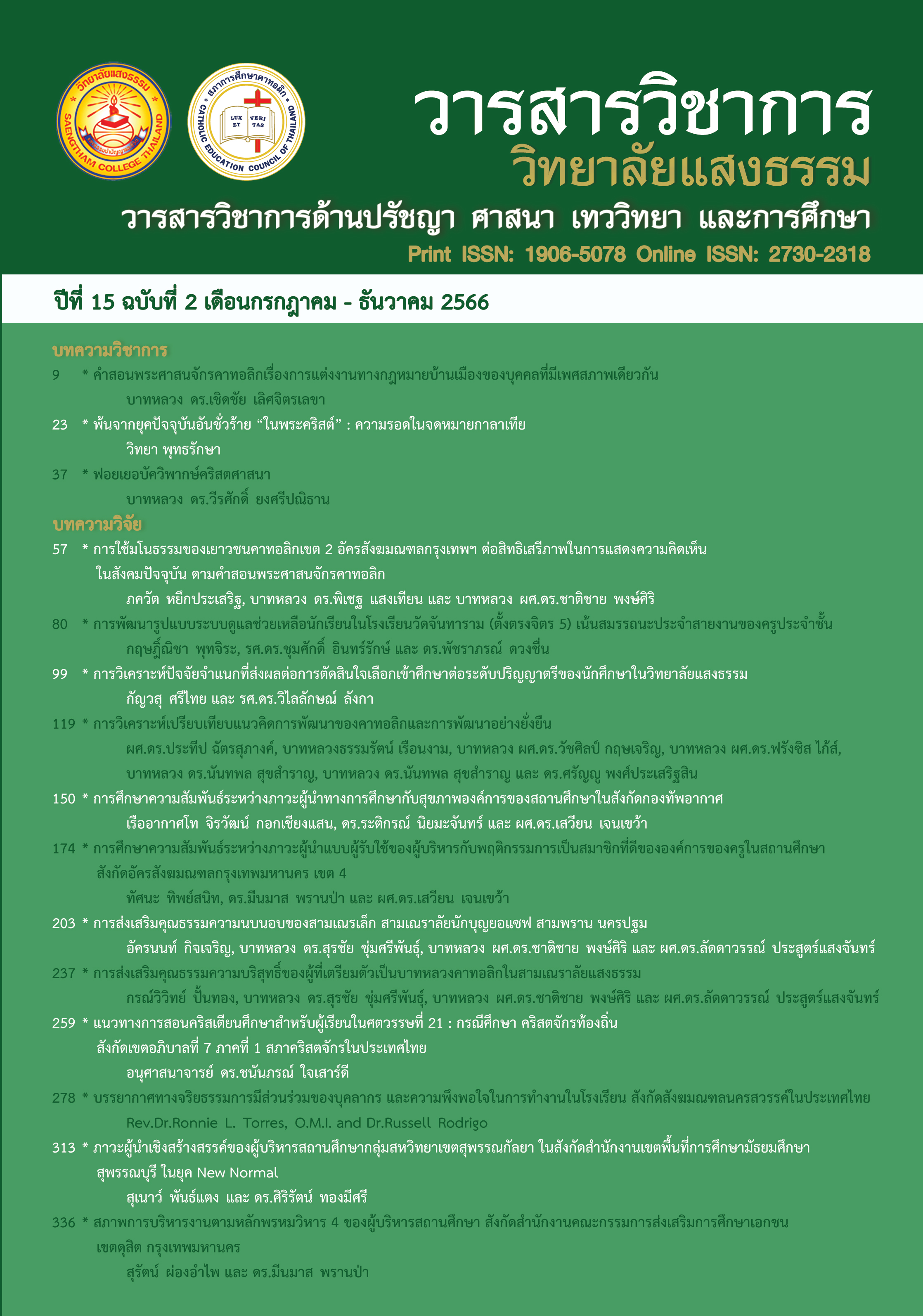Feuerbach's critique of Christianity.
Main Article Content
Abstract
I divide this article into; 1. Feuerbach: A biographical summary, 2. The early influence of Hegel, 3. Feuerbach as a “Left Hegelian”, 4. The purpose of Feuerbach’s work, 5. Feuerbach’s early works, 6. Feuerbach’s reflections on religion, 7. From theology to anthropology and 8. The influence of Feuerbach.
Article Details

This work is licensed under a Creative Commons Attribution-NonCommercial-NoDerivatives 4.0 International License.
- The academic and research articles, as well as the content and opinions expressed therein, published in Saengtham College Journal are solely the responsibility of the respective author(s).
- Articles published in Saengtham College Journal are the property of Saengtham College. Reproduction, modification, or dissemination of all or part of the content in any form without written permission from Saengtham College is prohibited.
- Articles published in Saengtham College Journal are protected under the Copyright Act.
References
Feuerbach, Ludwig. (1957). The Essence of Christianity: Translated from the German by George Eliot. Introductory Essay by Karl Barth. Foreword by H. Richard Niebuhr. Harper Row Publishers.
Feuerbach, Ludwig. (1981). Thoughts on Death and Immortality. University of California Press.
Freud, Sigmund. (1927). The Future of an Illusion. translated by James Stracey. W. W. Norton and Company.
Harvey, Van A. (1995). Feuerbach and the Interpretation of Religion. Cambridge University Press.
Joseph Ratzinger, Cardinal. (2006). Catechism of the Catholic Church. United States Conference of Catholic Bishops.
Ludwig Feuerbach. (2023, September 20). Lectures on the Essence of Religion. Stanford Encyclopaedia of Philosophy. https://plato.stanford.edu/entries/ludwig-feuerbach/#BiogIntr.


